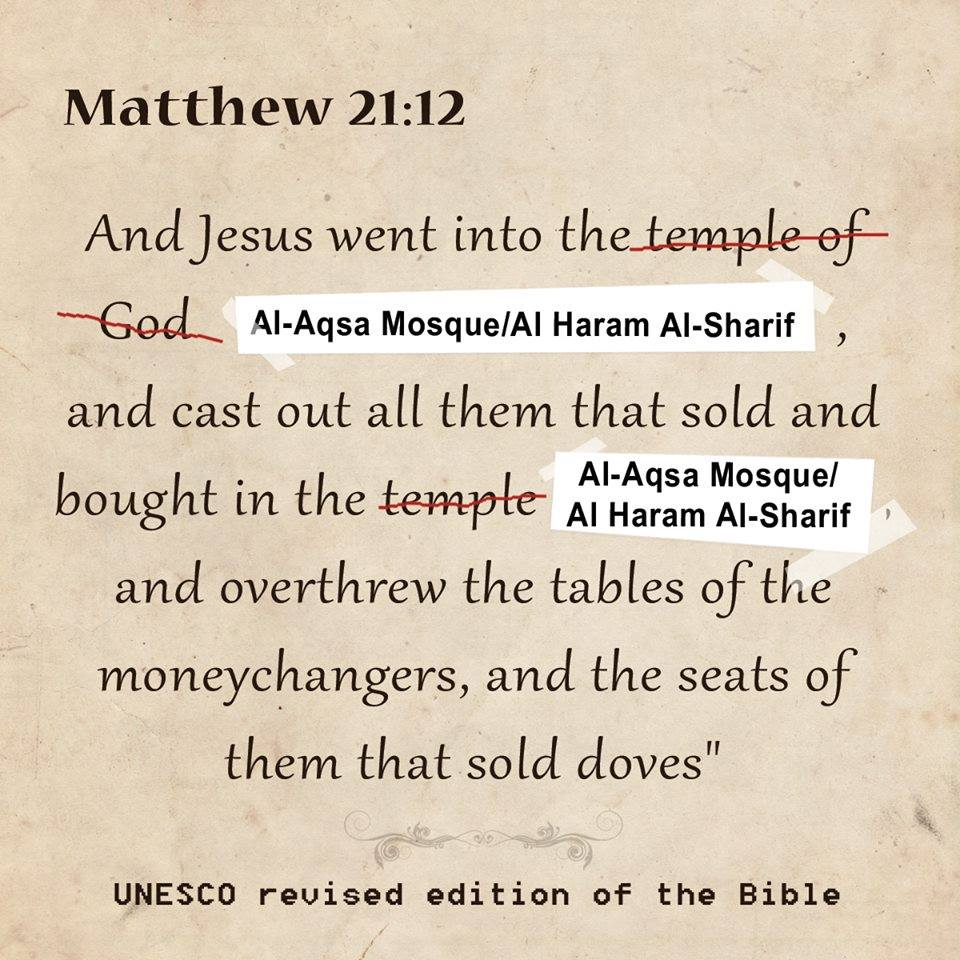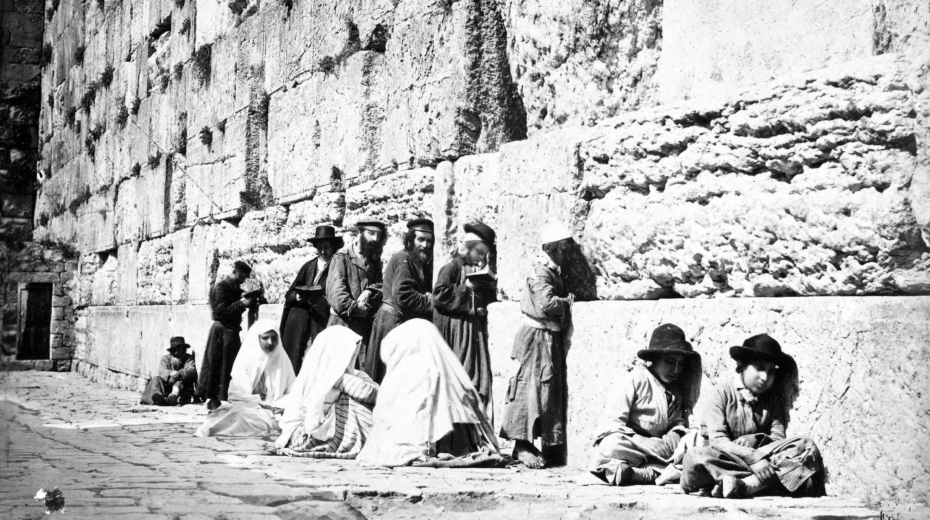The resolution refers to Palestine as if it were an actual, historical state. In this world of make-believe, Judaism’s holiest site no longer exists. In its place one finds the “Al-Aqṣa Mosque/Al-Ḥaram Al-Sharif and its surroundings.” The document “strongly condemns”, “firmly deplores”, “deeply decries”, and “deeply regrets” Israeli control over this most holy and ancient Palestinian shrine.
Even the Wailing Wall is labeled primarily as Al-Buraq Plaza. But given that few are familiar with this name, the resolution throws the tiniest of bones to the Jews by noting that the site is also referred to as the “Western Wall Plaza.” Using this name instead of the more common (at least in Jewish circles) Wailing Wall, and making sure to qualify it with quotation marks, signals that UNESCO does not truly recognize even this place as Jewish. Jerusalem, all of it, according to UNESCO, was always Muslim.
Commenting on the resolution, Prime Minister Benjamin Netanyahu wrote on his Facebook page that “the UNESCO decision … once again denied the over-3,000-year-old connection between the Jewish people and its holiest site in Jerusalem, the Temple Mount … Decisions like this … only fuel the Palestinian fantasy of a Land of Israel with no Israel.” Such a decision, continued Netanyahu, demonstrates the UN’s “moral bankruptcy when it comes to Israel.”
Netanyahu’s post concludes with photoshopped image (taken from unacknowledged source) mocking the resolution. Entitled “UNESCO revised edition of the Bible,” it quotes the new “appropriate” version of Matthew 21:12: “And Jesus went into the Al-Aqsa Mosque/Al Haram Al-Sharif and cast out all of them that sold and bought in the Al-Aqsa Mosque/Al Haram Al-Sharif…” Israeli officials, let alone the prime minister, rarely, if ever, refer to the New Testament. His use of this particular insert suggests Netanyahu hopes to spur the Christian world to action.

Nor was Netanyahu the only Israeli political figure to call attention to the New Testament. Moshe Feiglin, former Likud leadership challenger and head of the new political party Zehut Yehudit (Jewish Identity), skewered the UNESCO decision by quotting Mathew 21:10-11: “When Jesus entered Jerusalem, the whole city was stirred and asked, ‘Who is this?’ The crowds answered, ‘This is Jesus, the prophet from Nazareth in Galilee’.”
Given that Feiglin is not well known outside Israel, it is worth noting that he is a yeshiva graduate who today lives in the Jewish settlement of Karnei Shomron. In 1993, Feiglin founded the Zo Artzenu (This is Our Land) movement to protest the so-called “Oslo Accords.” Three years later, Feiglin established the Manhigut Yehudit (Jewish Leadership) movement that later merged with Likud. In 2015, he left Likud to start his own party. Feiglin is a prolific writer who struggles relentlessly for a comprehensive Jewish state, though one without religious coercion.
Against this background, Feiglin writes on Facebook: “UNESCO’s ‘interpretation’ of history, of reality, is giving a new meaning to the New Testament, to Jesus’ life. Anyone who is ‘politically correct’ should say from now on that Jesus of Nazareth was executed by … the Muslims for disturbing the peace at ‘Haram Al-Sharif.’ This means also that antisemitism should be directed against Muslims, not Jews. And good luck with that…”
Facetious as it may be, Feiglin’s post is another interesting example of how, at times, Jews look to Jesus to justify the existence of the Jewish state.











